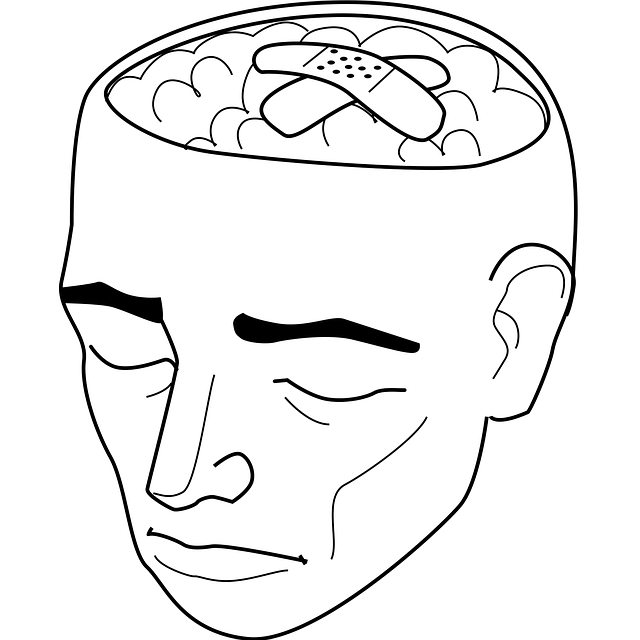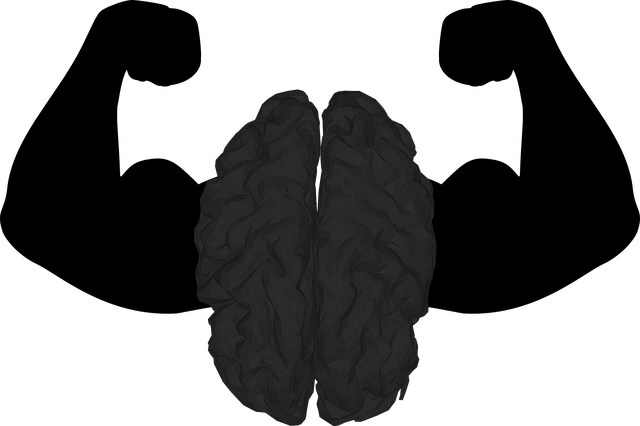Cultural competency is key to delivering quality healthcare that respects diverse patients' unique needs. Organizations like Stress Management Workshops prioritize training in cultural understanding to create inclusive environments, improving patient satisfaction and health outcomes. Biases, whether conscious or unconscious, negatively impact patient care by leading to miscommunication and misunderstandings between providers and culturally diverse patients. To overcome this, healthcare professionals must cultivate cultural competency through specialized training that emphasizes compassion, enabling them to recognize and overcome implicit biases for more empathetic interactions. Castle Rock Relationship Issues Therapy (CRRIT) offers a specialized approach addressing cultural barriers in mental health treatment, focusing on diverse populations' unique challenges. Effective training programs should cover personal biases, historical injustices, cultural practices, and mental wellness dynamics through interactive workshops, case studies, and peer discussions. Evaluating the effectiveness of these programs involves qualitative and quantitative methods, ensuring knowledge gain, attitude shifts, and real-world application for improved patient outcomes and burnout prevention among mental health professionals.
In today’s diverse healthcare landscape, cultural competency is no longer an option but a necessity. This comprehensive guide explores the critical role of training in enhancing patient care for healthcare providers. We delve into the complexities of cultural biases and stereotypes, offering insights on how Castle Rock Relationship Issues Therapy tackles these challenges. From understanding foundational concepts to designing effective training programs and measuring success, this article provides essential strategies for improving healthcare outcomes through cultural competency.
- Understanding Cultural Competency in Healthcare: A Necessary Foundation
- The Impact of Cultural Biases and Stereotypes on Patient Care
- Castle Rock Relationship Issues Therapy: Addressing Cultural Barriers to Effective Treatment
- Designing Comprehensive Training Programs for Healthcare Providers
- Measuring and Evaluating the Effectiveness of Cultural Competency Training
Understanding Cultural Competency in Healthcare: A Necessary Foundation

Cultural competency is an essential aspect of providing quality healthcare that respects and meets the unique needs of diverse patient populations. It involves understanding and appreciating cultural differences in beliefs, values, and behaviors, which can significantly impact how individuals access and perceive medical services. In today’s diverse society, healthcare providers must navigate complex Castle Rock relationship issues, as their interactions with patients from various cultural backgrounds can make or break trust and treatment outcomes.
The Stress Management Workshops Organization emphasizes the importance of this training for healthcare professionals to foster a more inclusive environment. By incorporating Cultural Competency Training, organizations like these aim to enhance patient satisfaction and improve health outcomes. For instance, a Mental Wellness Podcast Series Production might offer insights into specific cultural practices related to mental health, ensuring providers are equipped to offer sensitive and effective care. This foundation of cultural understanding is crucial in building bridges between healthcare systems and diverse communities, ultimately promoting better overall wellness.
The Impact of Cultural Biases and Stereotypes on Patient Care

Cultural biases and stereotypes can significantly impact patient care, often leading to miscommunication and misunderstandings between healthcare providers and patients from diverse backgrounds. These biases, whether conscious or unconscious, may cause professionals to make assumptions about a patient’s preferences, abilities, or behaviors based on their ethnic or cultural identity. For instance, a provider’s preconceived notions about a patient’s dietary needs or approach to pain management due to cultural stereotypes can result in inadequate treatment plans.
In the context of Castle Rock relationship issues therapy, where emotional healing processes are at the forefront, cultural competency is crucial. Healthcare providers with implicit biases might misinterpret a patient’s non-verbal cues, emotions, or personal values, hindering the therapeutic process. Compassion cultivation practices within cultural competency training can help professionals recognize and overcome these biases, fostering more empathetic and effective patient interactions. This, in turn, enhances overall healthcare delivery, ensuring that every patient receives respect, understanding, and culturally sensitive care tailored to their unique needs.
Castle Rock Relationship Issues Therapy: Addressing Cultural Barriers to Effective Treatment

Castle Rock Relationship Issues Therapy (CRRIT) is a specialized approach that recognizes and addresses cultural barriers to effective treatment. In many communities, individuals face unique challenges due to their cultural backgrounds, which can significantly impact mental health and overall well-being. CRRIT aims to bridge these gaps by providing culturally sensitive support tailored to diverse populations. By understanding the specific cultural nuances and beliefs of each client, therapists facilitate a more inclusive and accessible therapeutic environment.
This approach not only enhances the effectiveness of therapy but also builds resilience within communities. Through mental health policy analysis and advocacy, CRRIT promotes systems-level change, ensuring that services are tailored to meet the diverse needs of all individuals. By integrating stress management techniques, this therapy equips clients with valuable tools to navigate life’s challenges, fostering a sense of empowerment and self-care.
Designing Comprehensive Training Programs for Healthcare Providers

Designing comprehensive training programs for healthcare providers involves acknowledging the multifaceted nature of cultural competency. These programs should encompass a wide range of topics, including an exploration of personal biases, historical and systemic injustices, and diverse cultural practices. By integrating interactive workshops, case studies reflecting real-world scenarios, and opportunities for peer discussion, training can foster deeper understanding and empathy.
Incorporating approaches like Castle Rock Relationship Issues Therapy, which emphasizes the interconnectedness of mental wellness and interpersonal dynamics, can offer valuable insights into navigating complex cultural landscapes. Encouraging positive thinking and promoting open communication are also essential components. The Mental Wellness Podcast Series Production can serve as a resource for sharing best practices, personal narratives, and expert interviews, enhancing ongoing education and fostering a culture of continuous learning among healthcare providers.
Measuring and Evaluating the Effectiveness of Cultural Competency Training

Evaluating the impact and effectiveness of cultural competency training is essential to ensure its success and long-lasting benefits. Measuring this involves a multi-faceted approach, considering both qualitative and quantitative data. Pre- and post-training assessments can gauge knowledge gain and attitude shifts among healthcare providers. These assessments may include surveys or interviews designed to explore their understanding of cultural competencies, self-efficacy in applying these skills, and perceived changes in patient interactions.
Additionally, long-term follow-up evaluations are crucial to assess the training’s sustainability and real-world application. By collecting feedback from participants and observing improvements in their practices, such as enhanced communication with diverse patients or successful resolution of Castle Rock relationship issues therapy scenarios, trainers can refine programs. This ongoing assessment ensures that the training remains relevant, effective, and contributes to burnout prevention among mental health professionals, while also enhancing patient outcomes.
Healthcare provider cultural competency training is no longer a nice-to-have, but an essential component for delivering quality patient care. By addressing biases, stereotypes, and cultural barriers, as illustrated through innovative programs like Castle Rock Relationship Issues Therapy, healthcare professionals can create inclusive environments that respect diverse backgrounds. Comprehensive training programs, meticulously designed and evaluated, ensure providers are equipped to navigate complex cultural dynamics effectively. This not only enhances patient outcomes but also fosters better relationships within diverse communities, ultimately transforming healthcare delivery for the better.














